Donald J. Robertson's Blog, page 21
February 22, 2024
Excerpt: Who was Marcus Aurelius?
This is an excerpt from my new biography Marcus Aurelius: The Stoic Emperor, published by Yale University Press as part of their Ancient Lives series. Available now in hardback, ebook, and audiobook formats from Amazon, Barnes and Noble, and all good bookstores.
Listen to a Sample from the Audiobook
Who was Marcus Aurelius?Who was Marcus Aurelius the man? Many today came to know him through his portrayal by Richard Harris in the movie Gladiator (2000), and a few may recall Alec Guinness in The Fall of the Roman Empire (1964)—but these films are only loosely based on history. As it happens, we know more about Marcus Aurelius’s biography than that of any other Stoic or of almost any other ancient philosopher.
Three main Roman histories survive that describe his life and character: the Roman History of Cassius Dio, the History of the Empire from the Death of Marcus by Herodian, and the multi-author Augustan History. We also possess a cache of private letters between Marcus and his rhetoric tutor Marcus Cornelius Fronto that give us exceptional insight into his private life as Caesar (designated heir of the emperor) and later as emperor himself.
Stoicism: Philosophy as a Way of Life is a reader-supported publication. To receive new posts and support my work, consider becoming a free or paid subscriber.
The emperor Hadrian features prominently in this book because he had a profound influence on the boy’s upbringing.
In these sources, we encounter colorful characters with whose lives Marcus Aurelius’s story was intertwined. The emperor Hadrian, for instance, features prominently in this book because he had a profound influence on the boy’s upbringing. Marcus Aurelius was born under Hadrian’s rule, later adopted as his grandson, and even brought to live in his villa during the final months of Hadrian’s life.
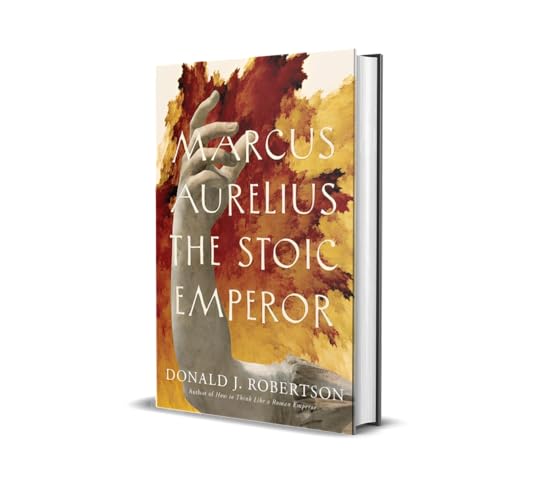
Hadrian has a reputation today as one of the better emperors, which he owes in part to Marguerite Yourcenar’s celebrated novel Memoirs of Hadrian: as one of his other biographers notes::
“It is no exaggeration to say that for a while Mme. Yourcenar supplanted the academics. Her Hadrian was received as a true image of the real thing.”
Yourcenar’s book, considered by many to be a literary masterpiece, draws on careful research. It was, however, intended as a work of historical fiction, and it portrays Hadrian far more sympathetically than is justified by the historical evidence. It is written from Hadrian’s perspective in the form of letters from him to the young Marcus Aurelius, whose replies we never see. The book you are currently reading is more concerned with that boy’s story—and Marcus Aurelius had nothing positive to say about Hadrian.
Hadrian’s name is conspicuously absent from book 1 of the Meditations, which lists the sixteen family members and tutors whose qualities Marcus most admires. That book is, in a sense, his autobiography, though perhaps it would be better to call it a fragment of an autobiography, as the author tells us only how specific individuals inspired him. He leaves out the others, such as the many critics of his rule who opposed him or came to see him as their enemy. He also omits virtually any reference to the major events of his life.
In this modern biography I build on these fragments, and other sources, to show how Marcus took inspiration from his family and his tutors as a young man, and how he proceeded to apply the Stoic philosophy they taught him to the enormous challenges he faced as emperor.
Thank you for reading Stoicism: Philosophy as a Way of Life. This post is public so feel free to share it.
February 21, 2024
Are children the future... of philosophy?
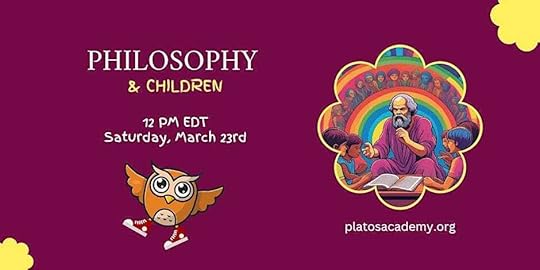
Plato’s Academy Centre (PAC) has been running regular virtual events on philosophy, all free of charge for over a year now. I was particularly looking forward to organizing an event on Philosophy and Children, though, as it’s something I think absolutely everyone can learn from.
Don’t worry if you can’t make it along live as everyone who registers in advance will receive a video of the whole event afterwards to watch at their leisure. By supporting this event, you’re helping PAC to encourage future work in this area.
Are you interested in making philosophy practical and accessible for the general public, and bringing it out of the ivory towers of academia? What better way than looking at how children of different ages can be taught philosophy? Even better, we have managed to put together a stellar program of speakers including some leading experts in this field. This is going to be a fun and interesting event.
ProgramDr. Catherine McCall, author of Transforming Thinking: Philosophical Inquiry in the Primary and Secondary Classroom
Kevin McArevey, Principal of Holy Cross Boys' Primary School in Belfast, featured in the documentary Young Plato
Peter Worley, co-founder and CEO of The Philosophy Foundation, author of The If Machine: Philosophical Enquiry in the Classroom
Prof. M.D. Usher, University of Vermont, author of Wise Guy: The Life and Philosophy of Socrates and How to Care about Animals: An Ancient Guide to Creatures Great and Small
Elizabeth Smith M Ed., US Navy’s Child and Youth Program (CYP)
Anya Leonard, founder of Classical Wisdom Kids
Anthony Magnabosco, Executive Director of Street Epistemology International
Dr. Stelios Gadris, University of Crete
Dr. Maria Kasmirli, University of Crete
Dhruv Makwana, The Aurelius Foundation
Dr. Arthur Wolf, Education Director of The Thinking Playground and Associate Director of the Vancouver Institute of Philosophy for Children
Prof. Angie Hobbs, University of Sheffield; author of Plato's Republic: A Ladybird Expert Book
NB: The final program may be subject to change without prior notification.
Please register today to show your support, and join us for this once in a lifetime event!
Thanks,
Donald Robertson
Thank you for reading Stoicism: Philosophy as a Way of Life. This post is public so feel free to share it.
February 18, 2024
The Four Best Translations of Marcus Aurelius
If thou would’st master care and pain,
Unfold this book and read and read again
Its blessed leaves, whereby thou soon shalt see
The past, the present, and the days to be
With opened eyes; and all delight, all grief,
Shall be like smoke, as empty and as brief.
This epigram is found at the end of a Vatican manuscript of the Meditations of Marcus Aurelius. It captures the perennial appeal of the book, which is that it offers a way to “master care and pain” by providing philosophical insights that promise to elevate our minds above worldly concerns, both the things we crave and those we fear.
One of the questions people ask me most often is: “Which edition of the Meditations would it be best for me to read first?” There are many translations of Marcus Aurelius available. Here are three that I would recommend to most readers.
Robin WaterfieldISBN: 1541673859. Meditations: The Annotated Edition (2021) by Robin Waterfield is published by Basic Books. Waterfield is a classicist who has translated many texts by Plato, Xenophon, and other ancient authors. This book is currently available in hardback, paperback, and ebook formats (Goodreads).
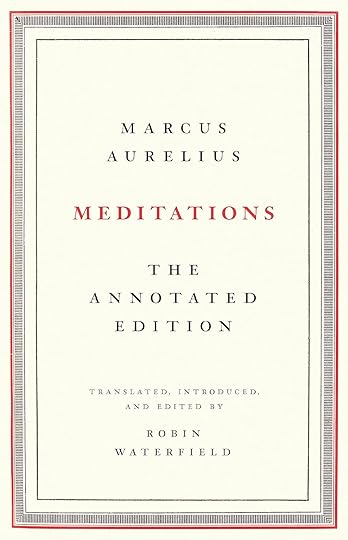
I’ve listed this first because it’s my own favorite translation of the Meditations and, at the time of writing, also the most recent one available. It’s quite a literal translation, so useful for scholarship, especially as it includes very comprehensive notes on individual passages. It’s also a very modern and readable translation, which I think most readers will enjoy. I tend to recommend it above the other editions listed here because of the notes and the fact it’s slightly more faithful to the original Greek text.
Stoicism: Philosophy as a Way of Life is a reader-supported publication. To receive new posts and support my work, consider becoming a free or paid subscriber.
Gregory HaysISBN: 9780812968255. Meditations: A New Translation (2003) by Gregory Hays is published by Modern Library, a division of Random House. It’s available in paperback and ebook formats. (Goodreads)
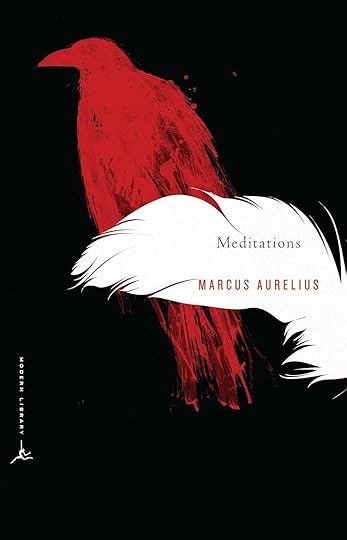
This is the most popular modern translation of the Meditations. It’s concise but very engaging and accessible, written in a style well-suited to lay readers. All translators have to choose between being more literal or being more readable. This is definitely one of the least literal but most readable translations. Hence, I would say this is overall the most popular modern translation. I would tend to recommend it to those who are less interested in scholarship and just want the easiest way to get into reading Marcus Aurelius.
Robin HardISBN: 0199573204. Meditations: With Selected Correspondence (2011) is by Robin Hard, with an introduction and commentary by Christopher Gill, professor emeritus of ancient thought at the University of Exeter, and is published by Oxford University Press. It’s available in paperback and ebook formats. (Goodreads)
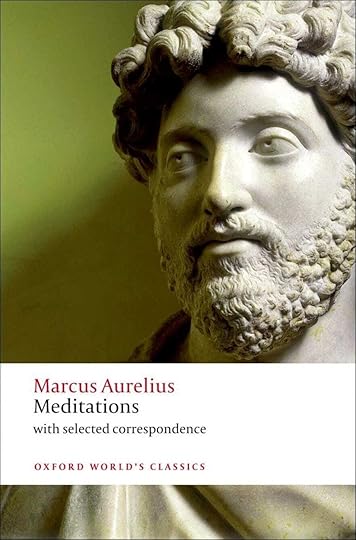
This is another more literal and authoritative translation, with useful notes, more suited perhaps to readers who wish to make a closer study of the text. It also contains valuable excerpts from the correspondence between Marcus and his rhetoric tutor Marcus Cornelius Fronto, which I think most readers will find valuable.
George LongISBN: 0857088467. Meditations: The Philosophy Classic (2019) is my own modernized version of the classic George Long translation, published by Capstone Classics, an imprint of John Wiley & Sons. It’s available as a deluxe hardback edition and also ebook. However, I believe that, like other books in this series, it will eventually be available also in paperback and audiobook versions. (Goodreads)
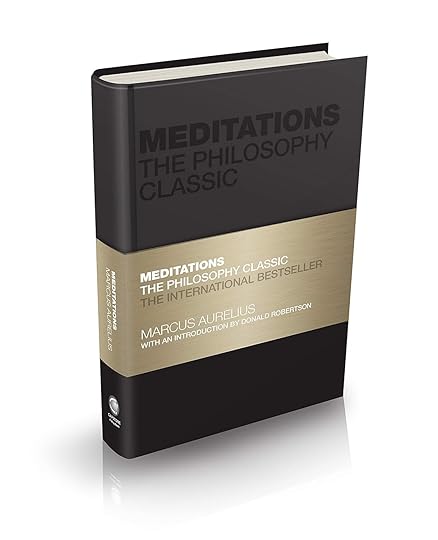
I was commissioned to update the much-loved translation first published by English classical scholar George Long in 1862, and turn it into plain English based on a close reading of the original Greek and comparison with more recent translations. It also includes my introductory essay on the life of Marcus Aurelius and the basic principles of his Stoic philosophy.
About AudiobooksSeveral people have asked me about audiobook versions of the Meditations. It’s tricky because as far as I’m aware there are no audiobook versions available of the Hard or Hays translations, although there may eventually by one for my version of the Long translation.
There are versions of the Meditations for sale on Audible which don’t specify the translator. I’m guessing they’re all based on old public domain translations, probably Long’s in most cases. There are also paraphrases of the Meditations, such as this recent one recorded by Shane Stott called Meditations Made Simple.
If you’re interested in learning more about the life and philosophy of Marcus Aurelius, there are several good books on the subject. Pierre Hadot’s The Inner Citadel: The Meditations of Marcus Aurelius is a classic. You may also enjoy my recent biography Marcus Aurelius: the Stoic Emperor (2024), part of the Ancient Lives series published by Yale University Press — currently available in hardback, ebook, and audiobook formats. Happy reading!
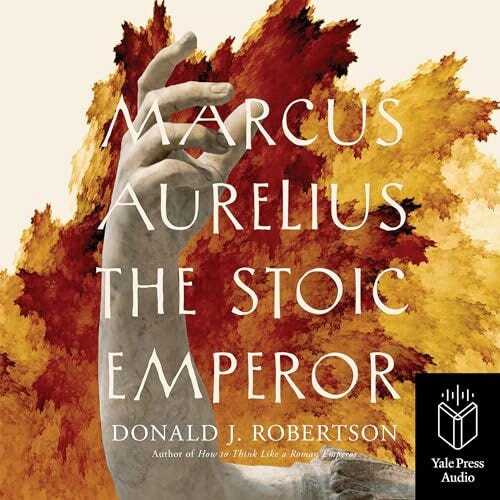
Thank you for reading Stoicism: Philosophy as a Way of Life. This post is public so feel free to share it.
Three Modern Translations of Marcus Aurelius
If thou would’st master care and pain,
Unfold this book and read and read again
Its blessed leaves, whereby thou soon shalt see
The past, the present, and the days to be
With opened eyes; and all delight, all grief,
Shall be like smoke, as empty and as brief.
This epigram is found at the end of a Vatican manuscript of The Meditations of Marcus Aurelius. It captures the perennial appeal of the book, which is that it offers a way to “master care and pain” by providing philosophical insights that promise to elevate our minds above worldly concerns, both the things we crave and those we fear.
One of the questions people ask me most often is: “Which edition of The Meditations would it be best for me to read first?” There are many translations of Marcus Aurelius available. Here are three that I would recommend to most readers.
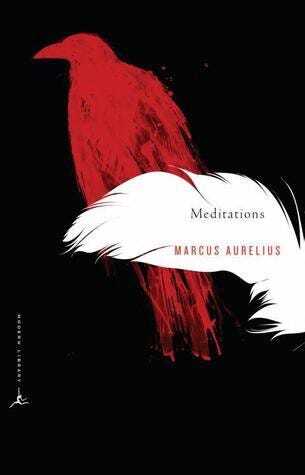 Gregory Hays
Gregory HaysISBN: 9780812968255. Meditations: A New Translation (2003) by Gregory Hays is published by Modern Library, a division of Random House. It’s available in paperback and ebook formats. (Goodreads)
This is the most popular modern translation of The Meditations. It’s concise but very engaging and accessible, written in a style well-suited to lay readers.
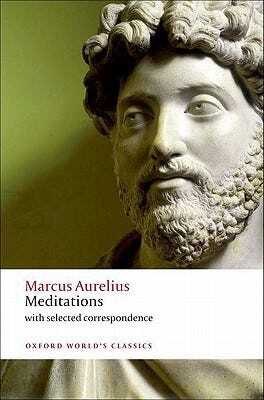 Robin Hard
Robin HardISBN: 0199573204. Meditations: With Selected Correspondence (2011) is by Robin Hard, with an introduction and commentary by Christopher Gill, professor emeritus of ancient thought at the University of Exeter, and is published by Oxford University Press. It’s available in paperback and ebook formats. (Goodreads)
This is arguably a more literal and authoritative translation, with useful notes, more suited perhaps to readers who wish to make a closer study of the text. It also contains valuable excerpts from the correspondence between Marcus and his rhetoric tutor Marcus Cornelius Fronto.
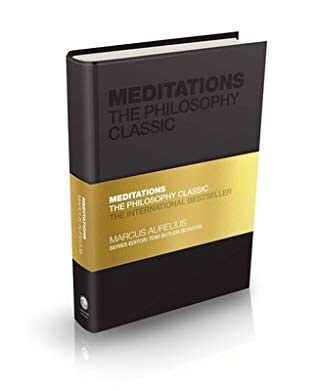 George Long
George LongISBN: 0857088467. Meditations: The Philosophy Classic (2019) is my own modernized version of the classic George Long translation, published by Capstone Classics, an imprint of John Wiley & Sons. It’s available as a deluxe hardback edition. This is the only hardback of the three. However, I believe that, like other books in this series, it will eventually be available also in paperback, audiobook, and ebook versions. (Goodreads)
I was commissioned to update the much-loved translation first published by English classical scholar George Long in 1862, and turn it into plain English based on a close reading of the original Greek and comparison with more recent translations. It also includes my introductory essay on the life of Marcus Aurelius and the basic principles of his Stoic philosophy.
About AudiobooksSeveral people have asked me about audiobook versions of The Meditations. It’s tricky because there as far as I’m aware there are no audiobook versions available of the Hard or Hays translations, although there may eventually by one for my version of the Long translation. There are versions of The Meditations for sale on Audible which don’t specify the translator. I’m guessing they’re all based on old public domain translations, probably Long’s in most cases. There are also paraphrases of The Meditations, such as this recent one recorded by Shane Stott called Meditations Made Simple.
If you’re interested in learning more about the life and philosophy of Marcus Aurelius, there are several good books on the subject. Pierre Hadot’s The Inner Citadel: The Meditations of Marcus Aurelius is a classic. You may also enjoy my own How to Think Like a Roman Emperor: The Stoic Philosophy of Marcus Aurelius (2019). Happy reading!

February 15, 2024
Never say that you have lost it...
Never say about anything, “I have lost it,” but only “I have given it back.” Is your child dead? It has been given back. Is your wife dead? She has been given back. “I have had my farm taken away.” Very well, this too has been given back. “Yet it was a rascal who took it away.” But what concern is it of yours by whose instrumentality the Giver called for its return? So long as He gives it you, take care of it as of a thing that is not your own, as travellers treat their inn.
Stoicism: Philosophy as a Way of Life is a reader-supported publication. To receive new posts and support my work, consider becoming a free or paid subscriber.
CommentaryWe’re told that after the death of Marcus Aurelius the people did not complain and said that he had not been lost but returned to the gods. That sounds almost like an allusion to this passage. It might also remind us of the Biblical passage: “Naked I came from my mother’s womb, and naked I will depart. The LORD gave and the LORD has taken away; may the name of the LORD be praised.” (Job 1:21).
February 14, 2024
The Audiobook of "Marcus Aurelius: The Stoic Emperor" is now Available
We are very pleased to announce that the audiobook of Marcus Aurelius: The Stoic Emperor is now available from Amazon, Audible, Barnes and Noble and other retailers. It was originally due for release on Feb 6th in the US and Canada but my publisher says a technical glitch with the file format, unfortunately, delayed the upload. It’s finally here, though! You can now listen to an audio sample if you click the button below…
About a week before Christmas, I went into the studio of Patrice d’Aragon in Montreal and, over four days, recorded the narration myself. There are precisely 373 foreign words and phrases in the book, which I was coached to pronounce by my friend Lalya Lloyd, who teaches Greek and Latin. (I don’t read Latin; I have studied a little ancient Greek but I’m pretty rusty; and I speak modern Greek badly, with a Scottish accent!) Our audiobook producer Kate Condon was live on the line throughout (from Bath in England!) supervising my narration. We’re very confident in the quality of the finished product.
Stoicism: Philosophy as a Way of Life is a reader-supported publication. To receive new posts and support my work, consider becoming a free or paid subscriber.
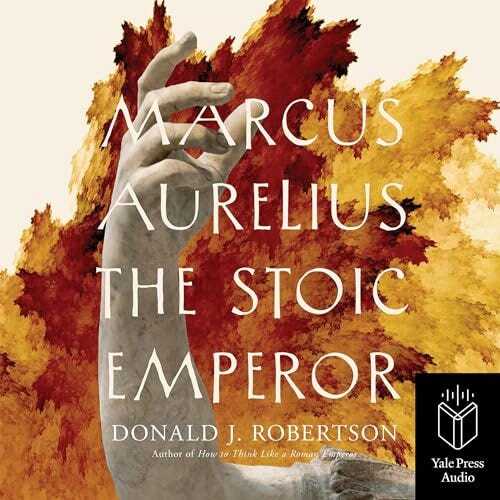
We’ve already started receiving early reviews on Amazon and Goodreads.
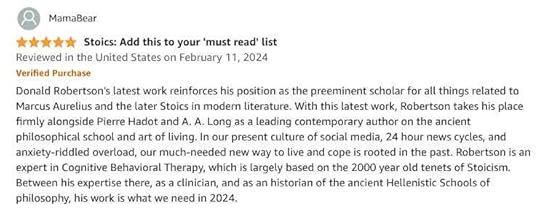
I hope you enjoy the book. Please consider leaving a review on Goodreads or Amazon. It really helps us and we’re always grateful to hear your feedback.
Thanks, as always, for your support,
Donald Robertson
Thank you for reading Stoicism: Philosophy as a Way of Life. This post is public so feel free to share it.
February 13, 2024
Street Epistemology and the Socratic Method
In this episode, I speak with Anthony Magnabosco a founder and the current Executive Director of the nonprofit Street Epistemology International, an educational organization that is committed to addressing dysfunction in public and private discourse by encouraging rationality through civil conversation. Anthony has been involved with Street Epistemology since 2013, and has given dozens of talks and workshops at conferences and events domestically and internationally. Many of his conversations have been uploaded to YouTube and demonstrate how Street Epistemology can be applied to a variety of claims including ones that are spiritual, political, or societal.
Stoicism: Philosophy as a Way of Life is a reader-supported publication. To receive new posts and support my work, consider becoming a free or paid subscriber.
 Highlights
HighlightsWhat is Street Epistemology?
What have you learned from your experience of using Street Epistemology?
How do you think it relates to the original Socratic Method?
How might it relate to psychotherapy?
Do you think Street Epistemology has any therapeutic potential?
What do you think of variations of Street Epistemology like Hidden Claim or the Spectrum SE we see Peter Boghossian doing?
What do you think the future holds for the method?
LinksStreet Epistemology website
Thank you for reading Stoicism: Philosophy as a Way of Life. This post is public so feel free to share it.
February 10, 2024
Podcast: The Biography of Marcus Aurelius
I recently appeared on Gil Roth’s Virtual Memories show to discuss my new biography, Marcus Aurelius: The Stoic Emperor. You can listen to the episode on YouTube via the player below, or check out Virtual Memories on iTunes and Listen Notes.
Stoicism: Philosophy as a Way of Life is a reader-supported publication. To receive new posts and support my work, consider becoming a free or paid subscriber.
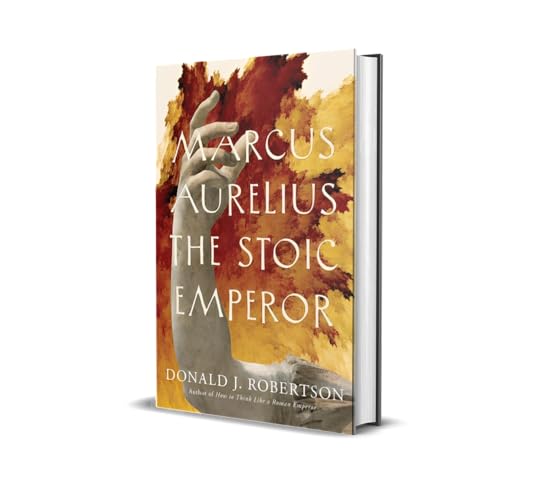
Thank you for reading Stoicism: Philosophy as a Way of Life. This post is public so feel free to share it.
February 9, 2024
Thank you for supporting "Marcus Aurelius: The Stoic Emperor"
I wanted to thank all of you for helping to support my work. My latest book, Marcus Aurelius: The Stoic Emperor, was published in 6th Feb by Yale University Press, as part of their Ancient Lives series. (It comes out on March 16th in the UK.) It’s been at the top of the Amazon charts in several categories for weeks and has been chosen as a staff pick on the Barnes and Noble website. NB: The hardback is currently 10% off and the Kindle is, I think, half-price on Amazon US! (The audiobook is available on Barnes and Noble already and will be on Audible very soon.)
Your feedback gives us an invaluable sense of what readers enjoy…
Early reviews have already started to appear on Amazon and Goodreads. If you’ve posted a review or are planning to do so, we thank you, as your feedback really helps us, and it gives us an invaluable sense of what readers enjoy. So please do let me know what you think of the book once you’ve had a chance to read it.
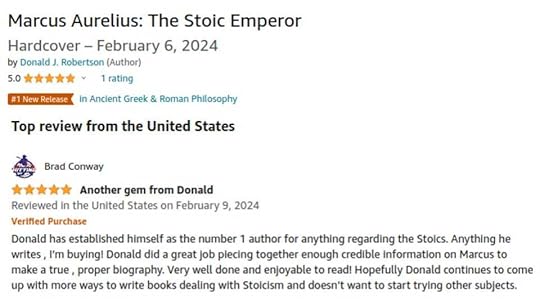
Stoicism: Philosophy as a Way of Life is a reader-supported publication. To receive new posts and support my work, consider becoming a free or paid subscriber.
Praise from other authors“Few historical figures are as fascinating as Marcus Aurelius, the emperor-philosopher. And few writers have been so effective at bringing his complex life and character to the attention of modern readers as Donald Robertson.”—Massimo Pigliucci, author of How to Be a Stoic: Using Ancient Philosophy to Live a Modern Life
“Robertson has written a very thorough and very readable account of Marcus’s life and the events and people that shaped him. Anyone who wants to understand the author of Meditations should read this book.”—Robin Waterfield, author of Marcus Aurelius, Meditations: The Annotated Edition
“Donald Robertson guides us into the world of a philosopher-emperor whose humility and Stoic teachings fill the pages. We are indebted to Robertson for this wonderful account of the emperor who penned notes to himself while in battle that would be later known as the Meditations and read by millions for philosophical inspiration. Simply spellbinding.”—Nancy Sherman, author of Stoic Wisdom: Ancient Lessons for Modern Resilience
“This highly readable biography is the perfect place to begin for anyone who wants to learn more about the man behind the Meditations.”—John Sellars, author of The Pocket Stoic
“Robertson’s biography provides a compelling narrative of Marcus’ life, carefully based on the primary sources. He brings out very clearly the life-long significance of Stoicism for Marcus and the interplay between philosophy, politics, and warfare.”—Christopher Gill, author of Learning to Live Naturally: Stoic Ethics and Its Modern Significance
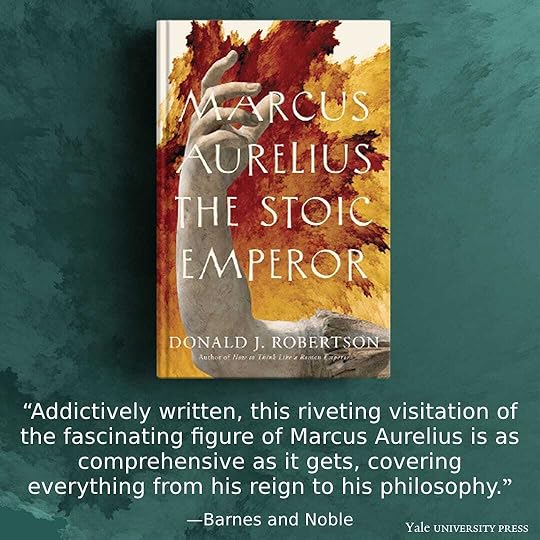
Thank you for reading Stoicism: Philosophy as a Way of Life. This post is public so feel free to share it.
February 8, 2024
The Plague of Marcus Aurelius
In this episode, I speak with Colin Elliott, Associate Chair in the Department of History at Indiana University. He describes himself as an economic and social historian with an interest in money, disease and ecology in the ancient Roman world. His latest book, Pox Romana: The Plague that Shook the Roman World was released on 6th Feb, the same day as my Marcus Aurelius: The Stoic Emperor. It is currently Amazon’s #1 New Release in Communicable Diseases. Colin is also the host of the Pax Romana Podcast.
HighlightsWhat was the Antonine Plague?
What are our main sources of information on the plague?
What does Galen have to tell us?
Can we tell anything at all about the plague or its impact from Marcus’ comments in the Meditations?
How do you think the plague may have been viewed from a religious perspective? To what extent would it have been interpreted as a punishment from the gods?
What do you think the social consequences were?
What do you think the effect of the plague may have been on Rome’s military capability at the time?
Are there any parallels that can be drawn between Marcus’ pandemic and our own?
How might Marcus’ reign have gone differently, or how might Rome have fared better, if the plague had never happened?
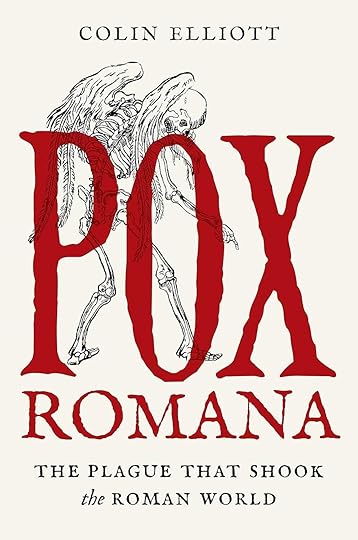 Links
LinksIndiana University Staff Profile
Pox Romana at Princeton University Press
Thank you for reading Stoicism: Philosophy as a Way of Life. This post is public so feel free to share it.

Thank you for reading Stoicism: Philosophy as a Way of Life. This post is public so feel free to share it.



